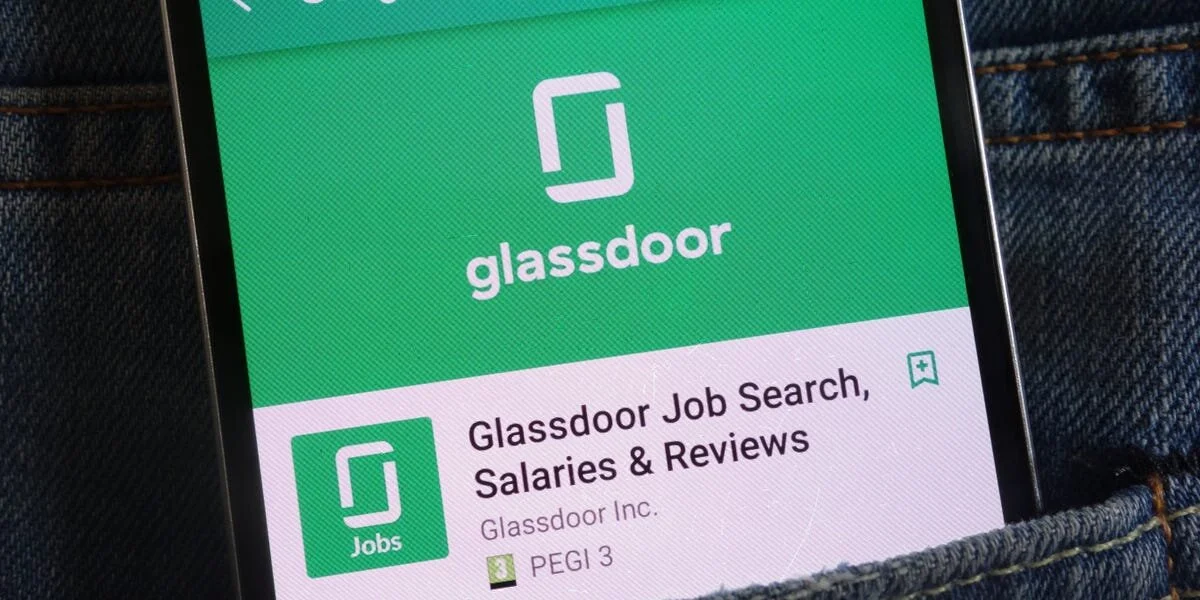Member Call Recap: Glassdoor & Creating a strategy that works
Glassdoor. The review site that we have a love/hate relationship with. It’s one of the main platforms out there that provides a perception of organisations that we can’t control. So how do we manage it effectively? From creating the right strategy for your organisation, to getting effective leadership buy-in and writing appropriate review responses, our recent TBA member call went through how we can properly manage the platform.
Imagine you are looking for a new restaurant for dinner. You find a lovely little place online, but as you have never been there, you decide to look it up on Trip Advisor or Yelp beforehand. You want to see the recommendations, the real experiences from other people. Glowing reviews give you a positive perception of the restaurant – so you go.
That’s how you can think of Glassdoor – think of it as Trip Advisor/Yelp for companies. We trust people and their recommendations more than the marketing that a company does. A person’s experience carries far more weight than a glossy recruitment ad that says ‘come join us, we are great’. Even if your leaders disagree with what a review says, it doesn’t matter – because those reviews are giving candidates a perception of your company that they are more likely to trust rather than the marketing material the company posts. That’s why Glassdoor is a platform we have to get behind – because it can directly influence how a candidate perceives a business. And perception is key.
So where do you start tackling it? Let’s start with the strategy.
Getting your strategy right:
1. Know your themes
It’s important to understand what your themes are on Glassdoor and if there are any trends that are coming out of the reviews. Go back through your company’s reviews and see if there is a pattern. Perhaps people feel there is a lack of learning and development, perhaps others are saying there are issues with the overall culture. By understanding your themes, you can start to see what the primary concerns are of your current and future employees. Have a look at the results from your employee engagement surveys, and see if there is any correlation between what people are saying internally and externally (they may well be similar!). Could action points from the employee surveys also extend to Glassdoor?
2. Understand your opportunities
Start to think about the opportunities that Glassdoor presents. Consider actions you want to take, such as responding to reviews, and actions you do not. Get the right content up there, whether that’s making sure your basic company information is right, or if you have an enhanced profile, getting good content on each section of the profile.
Create an urgency matrix for reviews – are they good, bad, or constructive? How quickly do you need to respond to reviews, and who needs to review responses and have their name on the platform? Who needs to be involved and have input into the reply?
You may want to think about hiring a consultant for this, but that isn’t necessary.
3. Build the right partnerships
Building the right relationships in your business is fundamental to handling Glassdoor. Work together with your corporate communications / marketing team on content – because getting that right is really important for your organisation.
4. Get buy-in from the top
Get buy-in from your senior leadership so that Glassdoor is a business priority – so when you reach out to a senior leader about Glassdoor, they know to take it seriously and respond swiftly. Doing this increases the quality of their responses – if senior leaders buy into why Glassdoor is so important, it means that the right people across the business are involved when it comes to bringing attention to any issues and responding appropriately.
5. Think about whether you want to respond to reviews
Some companies don’t respond to reviews – and that’s okay. Companies have different policies in place, some will choose to respond to all reviews, others respond using a prioritization matrix, others may not respond at all. Perhaps it is in-line with company policy or there are potential legal issues. You can be successful on Glassdoor without responding, but you have to do what is right for your company. If you do respond to reviews, respond in a timely manner because otherwise, people may think your company doesn’t care, so the review must be true. You need to engage quickly to come back with your point of view – and buy-in from leadership makes a big difference here.
6. If you do respond – decides who responds
When responding to the reviews, decide who should be responding to reviews. Should responses come from leaders in the people team, leaders in the business function mentioned, or you (the employer brand specialist)? Keep in mind that there isn’t a one-size-fits-all approach for reviews, you need tailored responses.
7. Hire agencies that think about Glassdoor
If your company is on the market looking for an agency, especially in the social media space, make sure the agency has an approach to Glassdoor, and that the platform is on their radar as another platform they are including in their services.
8. Insights and data
Look at the data, and start to isolate the trends with the data where it’s not anonymous. Look at the location, type, title, and tenure of the reviewers – do patterns emerge? Create regular reports that can provide your stakeholders with a summary and insights into your Glassdoor activity. Think about how you can align your results from your employee opinion surveys with the results from Glassdoor to identify common trends.
So now you have your strategy, how do you then get reviews from within your business?
Encourage your employees to share their reviews on Glassdoor, but make it clear that you want the reviews to be authentic, not deliberately positive. Think about regular times when you might suggest leaving a Glassdoor review to an employee – perhaps at the end of their new hire probationary period or passing a work milestone (anniversaries, promotions, etc.). However, also be sensitive to your business needs, and know when asking for Glassdoor reviews might not be a good idea – for example, if your company has made a number of redundancies or layoffs.
Take a realistic approach to your reviews
Reviews are always going to be mixed - and when faced with negative reviews, we have to make sure we don’t lead with denial, where our first reaction is “this was a problem employee” or “ this isn’t true.” We have to hear our employee concerns and not brush them under the carpet.
If you do respond to reviews, think about what guides you when you respond:
Gain context. Even if a review is anonymous, try to understand a reviewer’s scenario with all the context
Walk in their shoes. Remember that candidates and employees (to an extent) will believe a review where a person has expressed their feelings, so don’t deny them because that would destroy your own credibility with your candidates and employees.
Don’t be a robot. Don’t copy and paste your response. Every strategy needs sustainability, and you can outline ways to respond to different types of reviews, but make sure your responses coincide with the review. If you plan too much, it will leave the candidate feeling like they’ve experienced a robotic conversation, which leads to an inauthentic experience.
Respond First with Humility, and Leave Pride at the Door. Respond to your reviews with humility and honesty. If you aren’t going to be honest in your response, don’t respond.
Provide a Resolution. Don’t leave a response that says ‘sorry’ or gives vague promises of “we’ll look into it” – because your reviewer wants action. Leaving the resolution in someone else’s hands doesn’t provide a sense of relief, especially if the trust in the relationship is already at risk, which is most likely why they have left a review in the first place. If you can’t provide a resolution, don’t respond to the review.
It’s not about you. A lot of companies manage their Glassdoor presence to better protect their image – but candidates (and your employees) see right through this. Be genuine and authentic in your intent to help resolve conflicts with employees.
Balance emotions with facts. Find the best way to respond based on a factual representation of the situation. Think about your values, culture and where you might be headed as a company.
In summary….
It takes time to improve your Glassdoor presence. If you create a strategy with the sole aim of wanting to increase your score, you are likely to fail. Developing a strategy for the site, encouraging authentic reviews and responding with an honest response (if you choose to respond) will help you in the long run. Take the time and partner with the right stakeholders in your business when it comes to listening to the platform and responding to reviews. Glassdoor isn’t a quick win; it takes time to get the right buy-in and the right process in place – but a little patience goes a long way.
Looking for more strategy tips on how to manage your Glassdoor page? Join the Talent Brand Alliance! By clicking here you can connect with thousands of other practitioners who are navigating the same situations as yourself.
About Our TBA Members: Lindsey Sandford and Claire de Souza
Lindsey Sandford leads the Community Committee and oversees engagement of community members, the membership content and meeting calendar, and driving TBA member value
Claire de Souza has a love for storytelling and is passionate about creating meaningful content that engages candidates and gets to the heart of why they should join an organisation. She is currently at Atlanta Group, one of the fastest-growing insurance brokers in the UK where she leads on their employer brand and recruitment marketing activities, developing their employer brand from the ground up.





